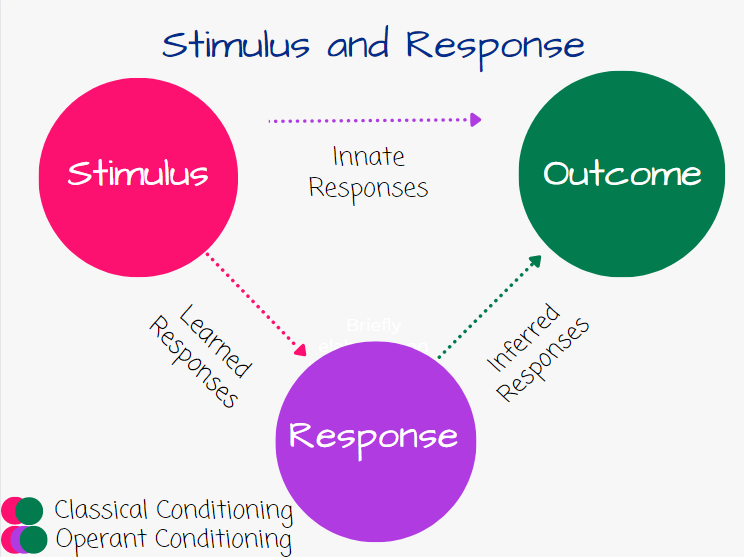Stimulus and Response; Conditioning
Minor Concept Summary: Stimulus and Response
Ed 304: Ed Psych and Human Development
Author: Camille Jamison
Validated by
ChatGPT was used to locate some of the information in this summary
Summary:
Stimulus: any object, circumstance, or event that can trigger a sensory or behavioral response in an organism.
Response: an organism’s sensory or behavioral reaction to outward influences or stimuli.
When stimuli and responses are manipulated, it is called conditioning. There are two main methods of conditioning: classical and operant
Classical Conditioning: The use of two paired stimuli to form an association between the first stimulus and the response. At first, the second stimulus triggers the response. Over time, the first stimulus is enough to trigger the response.
Operant Conditioning: The use of rewards and punishment to develop certain behaviors. Unwanted behaviors are punished, and preferred behaviors are rewarded.
Briefly, a stimulus is anything that can elicit a reaction in a living organism. Classical and operant conditioning are two of the main methods used to change responses based on stimuli.

Read more: Edward Thorndike Theory Explained - HRF (healthresearchfunding.org)
Quiz questions:
- True or False: Clicker training, a method used on dogs involving a device that makes a click sound and dog treats, is a form of classical conditioning.
A: False
B: True
- __________ is a realistic response to the stimulus of a busy schedule:
- An increase in stress
- Less leisure time
- Organizing and/or planning
- A & C
- All of the above
This content is provided to you freely by BYU-I Books.
Access it online or download it at https://books.byui.edu/development_motivati/nkYbzvtk.



